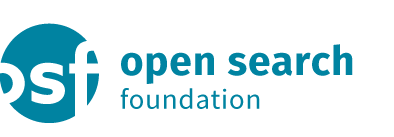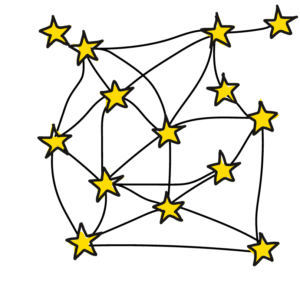For a value-oriented internet search in Europe:
Launching a new digitisation project
How do we embed more ethics in internet search? This is the question addressed by a new project of the Open Search Foundation (OSF), ‘#EthicsInSearch‘, funded by the Mercator Foundation.
Currently, we accept many ethical problems when searching the internet. These include possible surveillance and tracking, discrimination or hidden influence. These dangers are often based on a lack of ethical guard rails and a great imbalance: Google has a market share of over 90 percent in Germany, with about 77 million users per day. The situation is similar throughout Europe. Thus, a single search engine dominates the orientation on the net, decides with secret algorithms which search results we receive and in which order of priority, and what happens with our data. “Values such as transparency, privacy and justice play almost no role in internet search at the moment. Ethics should not be a mere nice-to-have for internet search,” criticises Christine Plote, OSF founding member and co-leader of the new #ethicsinsearch project.
“In order to uphold democratic values such as diversity of information and pluralism of opinion, free and independent navigation in the digital space is essential. Although we all use search engines every day, the discussion about the ethical issues of internet search is still in its infancy. That is why we support the Open Search Foundation’s work on scientific analyses, technical solutions and guidelines for more openness and diversity in internet search,” says Carla Hustedt, head of the “Digitised Society” department at Stiftung Mercator.
To open the doors to search engine diversity, the OSF team is striving for an open European search index. #ethicsinsearch is to provide the ethical basis for this new “internet index”. To this end, the project team around Christine Plote will not only name ethical sticking points, but also develop solutions. After publications on Pro7, in the Süddeutsche Zeitung or the New York Times, the Open Search Foundation wants to inform even more people about ethical questions of digitalisation and bring them into conversation. This involves controversial questions such as: “What are ethical no-go’s for search engines?” “Who decides, and who gets to decide, who decides?” or “How can ethical principles be firmly anchored in internet search?”
The next opportunity for interdisciplinary dialogue is the International Open Search Symposium #ossym21. The topic of digital ethics is on the agenda on the morning of the 13th. The conference will take place online from 11 to 13 October, hosted by CERN. (Info and agenda at: www.opensearchfoundation.org/ossym21)
Project information at:
+49 8151 9719372
opensearchfoundation.org/en/ethicsinsearch-project
The Project #ethicsinsearch – Ethics of Internet Search of the Open Search Foundation e.V. is funded by Stiftung Mercator.
——————————-
About Stiftung Mercator
Stiftung Mercator is a private, independent foundation that acts on the basis of scientific expertise and practical project experience. Through its work, it strives to create a society characterised by openness to the world, solidarity and equal opportunities. To achieve these goals, it promotes and develops projects that improve opportunities for participation and cohesion in an increasingly diverse society. Through its work, Stiftung Mercator aims to strengthen democracy and the rule of law in Europe, address the impact of digitalisation on democracy and society, and advance climate protection. Stiftung Mercator is active in Germany, Europe and worldwide. It feels particularly close to the Ruhr region, the home of the founding family and the seat of the foundation.
www.stiftung-mercator.de
About Open Search Foundation e.V.
The OSF – Open Search Foundation e.V. – is a non-profit European initiative. Since 2018, it has been campaigning for fair and transparent alternatives to the mainstream search engines. Its goal is an open search index that thinks about ethics and European values from the very beginning.
www.opensearchfoundation.org

